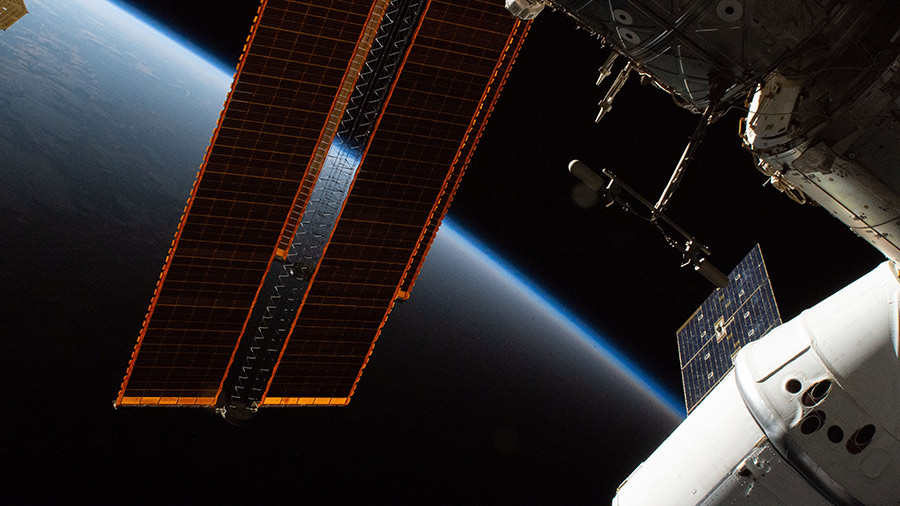
A U.S. cargo craft is being packed for its return to Earth next week while robotics controllers get ready to install a new European science platform on the International Space Station. The Expedition 62 crew also continued its ongoing human research activities.
The reusable SpaceX Dragon space freighter is being loaded this week with thousands of pounds of science experiments and station hardware. Robotics controllers will command the Canadarm2 robotic arm to remove Dragon from the Harmony module after its hatch is closed early Monday. Dragon will be released back into Earth orbit Monday at 9:52 a.m. EDT for a splashdown in the Pacific Ocean a few hours later.
NASA Flight Engineers Jessica Meir and Andrew Morgan will wrap up the science packing late Sunday. The duo will be transferring live mice, plant cells and other time-critical research samples into Dragon so scientists can understand how genetic expression changes in space.
Human research continued on board the station today as Meir examined and captured imagery of Morgan’s eyes with a fundoscope to learn how space-caused upward fluid shifts affect vision. Commander Oleg Skripochka of Roscosmos measured the station’s radiation environment then explored how future crews could pilot spaceships and robotic rovers on planetary expeditions.
Bartolomeo, an external science payload from the European Space Agency (ESA), will soon be installed on the outside of the Columbus laboratory. The complex installation work is being choreographed from the ground as flight controllers remotely command the Canadarm2 and the Dextre fine-tuned robotic hand. The ESA science device will enable the command and control of numerous external investigations on Columbus.
Back on Earth in Kazakhstan, the Expedition 63 crew continued reviewing its mission procedures today then took a break for traditional pre-launch activities. NASA astronaut Chris Cassidy and Roscosmos cosmonauts Anatoly Ivanishin and Ivan Vagner will launch to the station April 9 aboard the Soyuz MS-16 crew ship. After a six-hour ride to their new home in space, the trio will begin a 195-day mission aboard the orbital lab.
